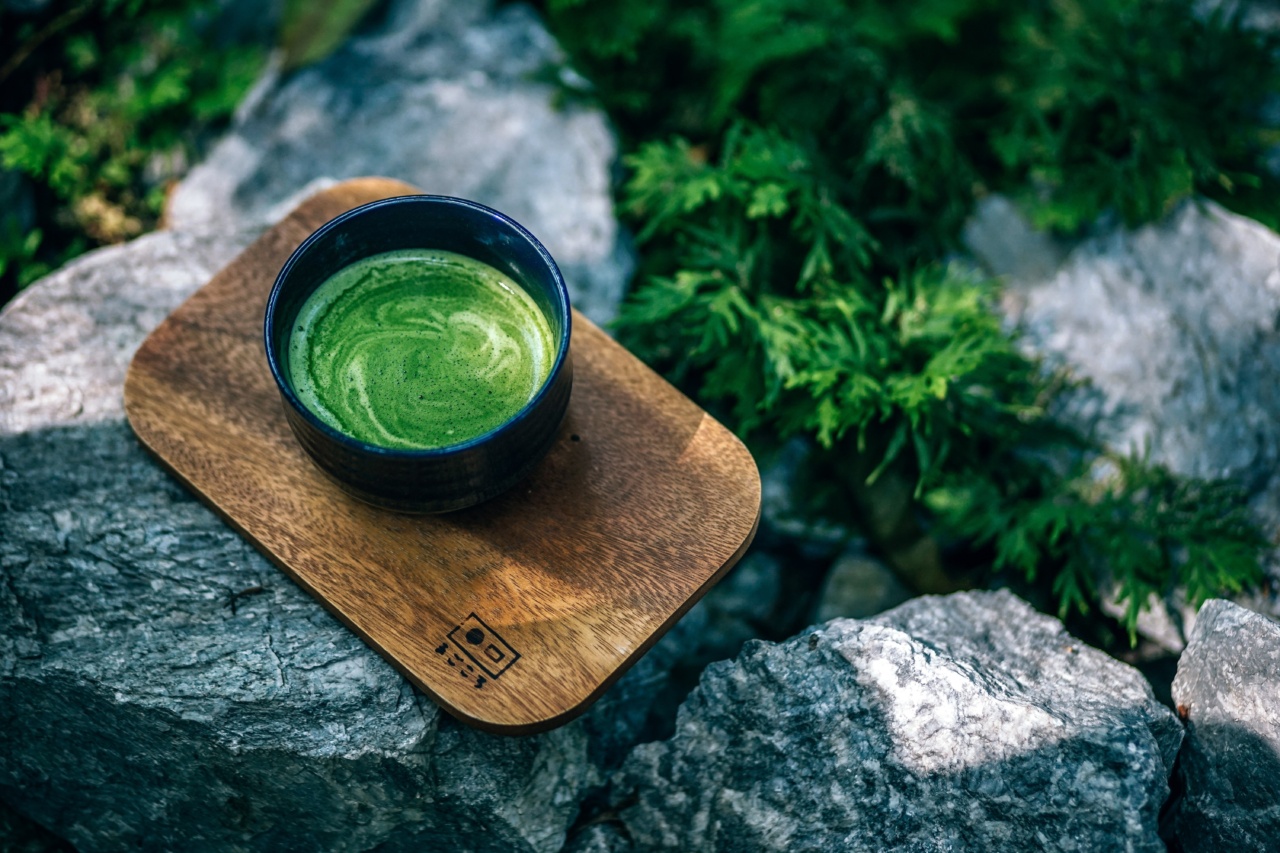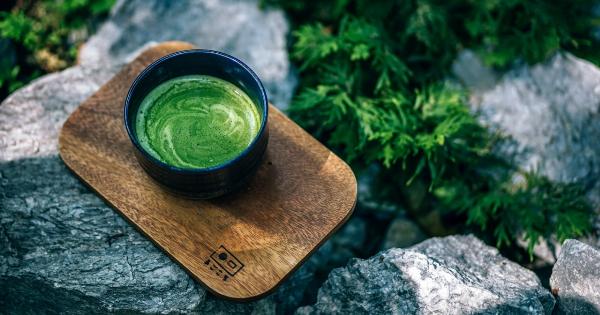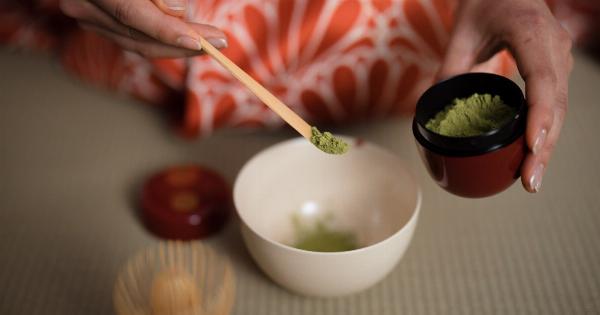Matcha tea is a form of green tea that originated in Japan. It has earned a considerable amount of popularity over the years for its health benefits, rich flavor, and vibrant green color.
Matcha powder is vibrant green and is derived from the Camellia Sinensis plant that is part of the same family as the traditional green tea. The plant is shade-grown before harvest by covering the tea plant with a shade-cloth. The shade prevents direct sunlight from reaching the tea leaves, making them rich in chlorophyll, which is responsible for its signature green shade.
It is your lucky day if you are reading this as we are about to take you through matcha tea and its wonders.
The Process of Making Matcha Tea
Matcha is made differently from the conventional green tea infusion. The production process is elaborate and involves several steps:.
Step 1: Harvesting
Matcha tea is from the same plant as the green tea you are used to. However, the difference comes in the harvest of the leaves.
The tea leaves used to produce matcha are shaded one month before harvesting to stimulate its flavor. The hand-picked tea leaves are then subjected to steaming to halt the fermenting process and kill the enzymes present in them. This prevents oxidation from occurring, and the green color in the leaves is preserved.
Step 2: Grinding
The tea leaves used to make matcha are then carefully ground into the bright green powder that we know and love. To get the powder, the leaves are subjected to grinding with a traditional grinding stone or machine to provide a fine powder-like texture.
This powder is then used to make the green tea we love.
The Taste and Flavor of Matcha Tea
Matcha tea has a unique taste that most people find quite different from that of traditional green tea. Its flavor is polished, creamy, and nutty.
It has a pleasantly bitter and earthy taste that is well balanced by its sweet grassy undertones, with a mild sweetness and our signature taste. When brewed, Matcha green tea comes out thick and has a distinctively frothy appearance.
Health Benefits of Matcha Tea
Here are some of the health benefits that come with taking matcha tea:.
1. High In Nutrients
Matcha tea is rich in numerous nutrients, the most prevalent of which is L-Theanine. This amino acid promotes relaxation, tranquil feelings, and decreases anxiety, among other benefits.
It also has Vitamin C, dietary fiber, and antioxidants, which protects your body from free radicals and cell damage. At the same time, chlorophyll, the compound that make matcha tea green, promotes healthy cell growth and detoxification.
These nutrients help to promote skin health and slow premature aging, making matcha tea an excellent addition to your skincare routine.
2. Boosts Metabolism and Energy
Matcha tea has caffeine, which provides you with the energy boost you need to tackle your day. The tea also contains a high concentration of L-Theanine, its natural amino acid, which helps improve brain function, focus, and concentration.
With the caffeine and L-Theanine combination, matcha tea provides you with a steady and sustained boost of energy that is different from the crashes associated with other caffeinated drinks. Additionally, matcha tea has a compound known as EGCG, which aids in weight loss by increasing your metabolism.
3. Suitable for Heart Health
Matcha tea has catechins, which are helpful in reducing the amount of low-density lipoprotein (LDL) in your blood.
This is the harmful cholesterol that clogs arteries and often leads to heart disease and heart attacks; matcha tea helps in reducing these instances. The tea also helps in keeping blood vessels from becoming blocked, ensuring proper blood flow throughout your body. Matcha tea has been found to decrease blood pressure and reduces the risk of suffering from cardiovascular diseases.
4. Reduces Stress and Anxiety
Matcha tea has L-Theanine, which is an amino acid that has been found to positively affect stress levels and anxiety. It promotes relaxation and reduces the physical symptoms of stress.
L-Theanine helps reduce the stress hormone (cortisol) levels in your body and encourages the production of serotonin and dopamine, the happy hormones, and helps to alleviate the symptoms of anxiety, such as nervousness, jitters, and tension.
5. Helps to Boost the Immune System
Matcha tea has compounds known as catechins, which help boost your immune system. These compounds have antibacterial and antiviral effects, which help to protect your body from pathogens.
Additionally, matcha tea is a good source of Vitamin C, which is essential in wound healing, and zinc, which boosts the immune system and prevents respiratory infections.
How to Prepare Matcha Tea
Matcha tea is very easy to prepare and can be done easily from the comfort of your own home. Here are the steps you will need to follow in preparing your matcha tea:.
Step 1: Boil some water
Start by boiling some water in a kettle. Once the water has boiled, pour it into a bowl or cup, ensuring the cup or bowl is warm. This is to ensure that there is no change in temperature from the boiling water to the matcha powder subsequently added.
Step 2: Add matcha powder
Add about a teaspoonful of matcha powder into the bowl or mug containing hot water. It is advisable to sift the matcha powder first to remove any lumps, which can disrupt its taste.
Step 3: Whisk the matcha powder and water
Using a bamboo whisk, mix the matcha powder and water until it forms a thick green paste-like concoction with a frothy layer on top.
This process is known as “whisking,” and you can vary the whisking time depending on the strength and texture of matcha tea you prefer.
Step 4: Add milk or sweetener (Optional)
If you desire, you can add milk or honey to enhance the taste of the matcha tea. Matcha tea’s original taste is nutty and creamy, and adding milk or any sweetener enhances its sweetness while minimizing the bitterness.
Step 5: Enjoy your matcha tea
Sit back, relax, and enjoy your matcha tea. You can choose to make adjustments to the matcha tea’s taste by varying the amount of powder you use or the number of times you whisk it.
Feel free to experiment to find what works best for you to get the ideal taste out of matcha tea.
The Bottom Line
Matcha tea has numerous health benefits, including reducing stress and anxiety, boosting metabolism, heart health, and reducing the risk of cardiovascular diseases.
It is also a rich source of vitamin C, chlorophyll, L-theanine, and other essential nutrients. Its unique flavor and vibrant green color make it a perfect addition to your morning routine or any other time of the day.




























